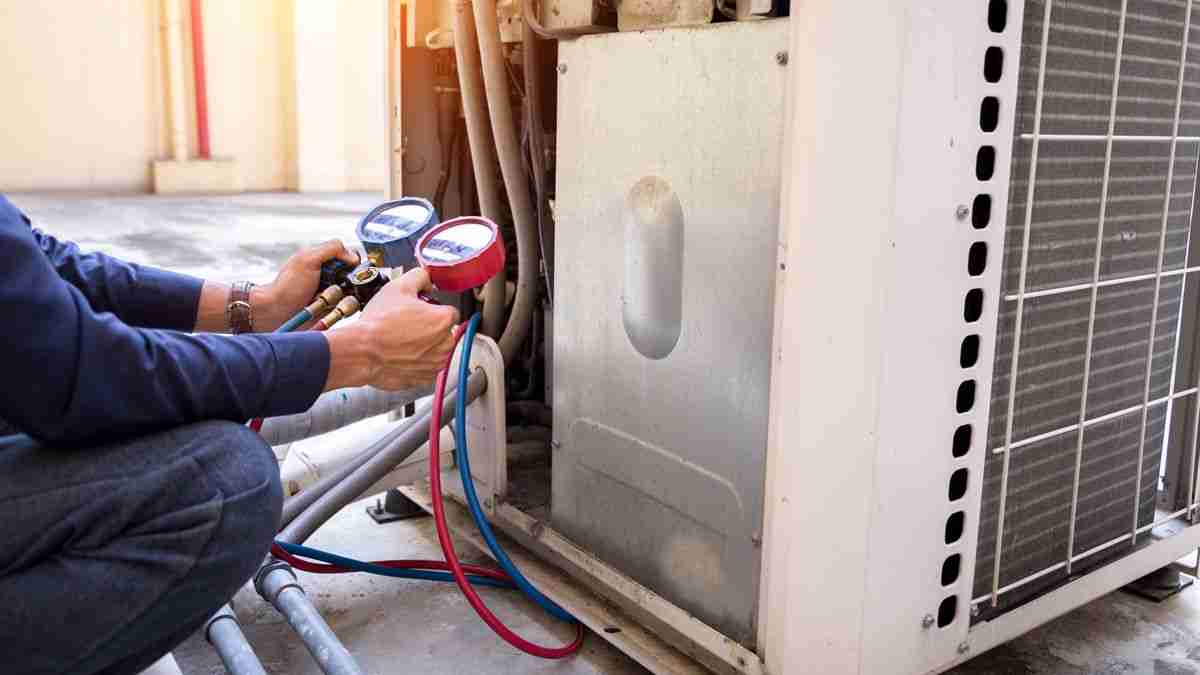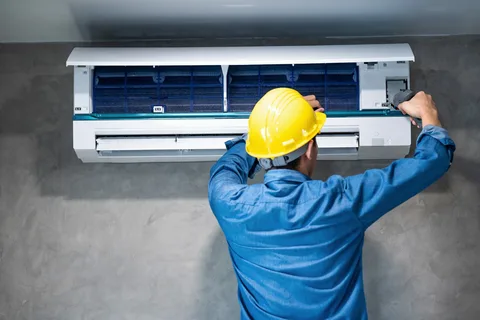When the weather starts to warm up, many homeowners begin thinking about installing air conditioning systems to keep their homes cool and comfortable. However, before you take the plunge, it’s essential to understand what factors affect air conditioning installation costs. These costs can vary significantly based on various aspects, including the type of system, the complexity of the installation, and the size of your home.
In this blog, we will break down the primary factors that influence the cost of air conditioning installation, helping you make an informed decision when it comes to choosing and installing your new cooling system.
1. Type of Air Conditioning System
The first factor that can influence air conditioning installation costs is the type of system you choose. There are several options available, each with its own pricing structure. Let’s look at the most common types:
Central Air Conditioning Systems
Central air conditioning systems are often the most expensive to install. These systems require ductwork, which can be a significant cost depending on the layout of your home. Additionally, if your home does not have existing ductwork, you may need to have it installed, which adds to the overall cost.
Ductless Mini-Split Systems
Ductless mini-split systems are becoming more popular for homes without existing ducts or for those seeking more energy-efficient solutions. While these systems may have a higher upfront cost compared to traditional systems, they can be more energy-efficient and cost-effective in the long run. Installation typically requires less invasive work, which can lower installation costs compared to central systems.
Window Units
For a smaller upfront investment, window air conditioning units can be an option. However, while they are cheaper to install, they are generally less efficient and may not provide as much cooling power as central systems or mini-split systems. These units may also require professional installation to ensure they are securely fitted and properly ventilated.
2. Home Size and Layout
The size and layout of your home play a significant role in determining the cost of air conditioning installation. Larger homes require more powerful systems or additional units to cool the space effectively. This means that the cost of installation will increase accordingly.
For example, installing a central air conditioning system in a large home with multiple floors may require more equipment and ductwork, making the installation process more complicated and expensive. Conversely, smaller homes or apartments may only need a smaller, less expensive system, such as a window unit or a ductless mini-split system.
Additionally, the layout of your home can impact the complexity of the installation. Homes with difficult-to-reach areas or limited space for equipment installation may require more time and effort, which can increase labor costs.
3. Energy Efficiency
Energy efficiency is an important factor that can affect both the installation costs and long-term running costs of an air conditioning system. Higher-efficiency systems tend to have a higher upfront cost, but they can save you money in the long run by using less energy to cool your home.
Systems with higher SEER (Seasonal Energy Efficiency Ratio) ratings are typically more expensive to install, but they offer better energy efficiency. When installing a new air conditioner, choosing an energy-efficient model may cost more initially but can lead to significant savings on your energy bills over time.
4. Labor Costs and Installation Complexity
Labor costs can vary widely depending on the complexity of the installation and the region in which you live. Some installations are relatively straightforward, while others require more extensive work. For example, if you need new ductwork installed or if the existing ductwork needs to be modified to accommodate the new system, the labor costs will be higher.
The experience and reputation of the contractor also play a role in determining the cost of installation. Experienced contractors may charge higher rates, but they are likely to provide better workmanship, which can lead to fewer issues down the line.
5. Additional Features and Upgrades
Adding extra features or upgrades to your air conditioning system can significantly increase the overall installation cost. Some common upgrades include:
- Programmable thermostats: These can help you manage the temperature in your home more efficiently, but they come at an additional cost.
- Air purification systems: If you want better air quality, you may choose to have an air purifier installed along with your AC system. This can add to the overall installation cost.
- Zoning systems: Zoning allows you to control the temperature in different parts of your home independently. This can be especially useful in large homes but will add to the cost of installation.
6. Location and Climate
The climate in your area can also affect air conditioning installation costs. For instance, regions that experience extreme heat may see higher demand for air conditioning systems, which can drive up both equipment and installation prices.
Additionally, local regulations and building codes can impact the installation process. Some areas may require permits or inspections for certain types of installations, which can add to the cost. Contractors in some regions may also charge more due to the higher cost of living or business operating expenses.
7. System Maintenance and Warranty
The cost of maintaining your air conditioning system can also influence the installation decision. Some systems come with long warranties or require less frequent maintenance, making them a better long-term investment. When considering installation costs, be sure to factor in the cost of regular maintenance to ensure your system continues to perform efficiently for years to come.
Conclusion
Understanding the key factors affecting air conditioning installation costs is crucial for making an informed decision when upgrading your home’s cooling system. Factors such as the type of system, home size, energy efficiency, and labor costs all play a significant role in determining the final price. By considering these factors and doing thorough research, you can ensure you get the best value for your money while staying cool and comfortable during the summer months.
FAQs
1. How much does air conditioning installation cost on average?
The cost of air conditioning installation can vary widely depending on the type of system and the complexity of the installation. On average, central AC installation can range from $3,000 to $7,000, while ductless mini-split systems can cost between $2,000 and $5,000. Window units are generally much cheaper, with installation costs ranging from $150 to $500.
2. Why are ductless mini-split systems more expensive to install?
Ductless mini-split systems are typically more expensive to install due to the advanced technology involved and the need for multiple indoor units. However, they are more energy-efficient and easier to install in homes without existing ductwork, which may justify the higher initial cost.
3. Can I install an air conditioning system myself?
While it is technically possible to install certain types of air conditioning systems yourself, it is generally not recommended unless you have extensive experience with HVAC systems. Improper installation can lead to inefficiency, higher energy costs, and potential system damage. It’s usually best to hire a professional contractor to ensure proper installation.
4. How can I lower the cost of air conditioning installation?
To lower your air conditioning installation costs, consider choosing a more affordable system, such as a window unit or a smaller ductless mini-split system. Additionally, ensure that your home is energy-efficient by sealing air leaks and insulating properly. Shopping around for the best contractor and getting multiple quotes can also help you save money.



